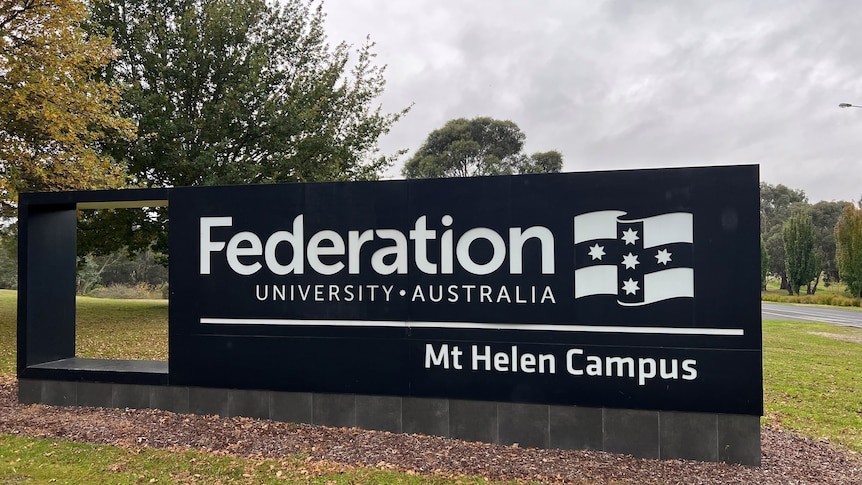Reducing access to humanities degrees will reduce critical thinking among the population and disadvantaged regional students, academics have warned, as Federation University prepares to ax its Bachelor of Arts (BA) program from 2023.
Key points:
- Federation University is preparing to ax its Bachelor of Arts degree from 2023
- The Federal Education Department will review recent fee-hikes for humanities degrees
- Academics say art degrees play a critical role in teaching young people to think critically
Making the decision less than two years after the former federal government doubled fees for humanities degrees, the university blamed the cut on declining enrollments from international and domestic students.
“Student commencements have failed from 87 in 2018 to just 27 in 2022,” acting vice-chancellor Professor Wendy Cross said.
“The Federation will continue to offer many of the courses that were part of the BA program … and we will redeploy staff where possible.”
A ‘short-sighted’ move
The move was labeled “short-sighted” by Ballarat-based professional historian Lucy Bracey.
“Cutting off access to this, not only does it limit future students — it particularly disadvantages regional students,” Ms Bracey said.
She said undertaking a degree in humanities taught young people critical thinking.
“You learn to evaluate sources, to learn to research,” Ms Bracey said.
“You learn to look at what you’re reading, [and] think about who created the source [and] why it was created.
“Critical thinking is allowing you to not just accept what you’re reading in the newspaper or told on the TV.”
Job-ready Graduates to be reviewed
The former federal government decided in 2020 to hike fees dramatically for humanities degrees under its Job-ready Graduates package, which simultaneously reduced the cost of science, engineering, nursing, health, teaching and maths degrees.
A federal Department of Education spokesperson said a “review” into the program would begin in the second half of this year.
“The government will appoint eminent Australians to conduct a universities accord, which will work with universities to consider things like affordability and accessibility,” the spokesperson said.
Arts apart from the ‘ecosystem’
Queensland University of Technology Professor Sandra Gattenhof was the chief investigator for the Australian Research Council linkage project, The Role of the Creative Arts in Regional Australia: a Social Impact Model.
“From our research it shows that any kind of arts engagement, whether it be the small crafting groups, to big events, to things like courses at regional university … they’re all part of an ecosystem,” Professor Gattenhof said.
“And the minute you take one bit of the ecosystem out, it means… the connections that are within that community begin to fragment.”
She said arts and humanities played a vital role within regional areas to create greater social inclusion.
“Often when we talk about regional community, we often talk about statistics — regional trade and tourism statistics,” Professor Gattenhof said.
“But we forget that arts, culture, and creativity, in and of itself, is a wellbeing indicator.
“If you have that in your community, your community is what we call, ‘thriving’.”
A disappointing anniversary
This year marks the 150th anniversary of Victoria’s Education Act, which made education free, secular, and compulsory for young students.
Ms Bracey said it was disappointing to see a reduction in student opportunities in 2022.
“There’s a current thinking in society that is, if you’re not doing something that has an immediate job outcome at the end of it… it’s not worth doing,” she said.
“And there’s so many things wrong with that.
“There are over 500 professional historians, working across Australia, who all have an arts degree background.”
.
